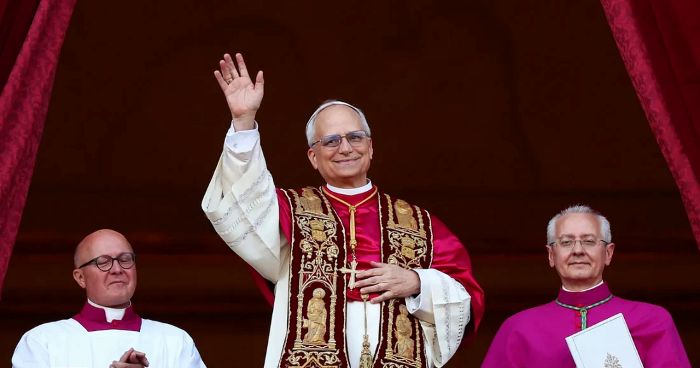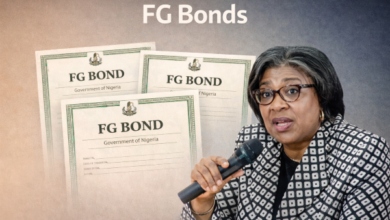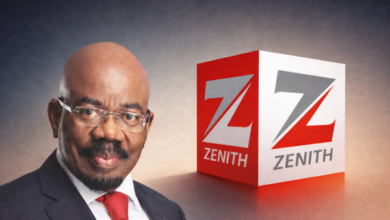“White Smoke, American Moment: Pope Leo XIV Ushers in a Bold New Era for the Catholic Church”

In a historic twist that has excited ecclesiastical watchers and ignited global conversations on faith, leadership, and geopolitics, the Roman Catholic Church has elected Cardinal Robert Prevost as the new pope — the first American to ascend to the papacy in the Church’s 2,000-year history. Taking the name Pope Leo XIV, the 69-year-old prelate stepped onto the balcony of St. Peter’s Basilica, greeted by a sea of expectant faithful and the deafening chimes of Vatican bells.
With the now-ritualistic white smoke billowing from the Sistine Chapel chimney — the ancient symbol of consensus and continuity — a new chapter in Vatican history was officially launched. The crowd gathered in St. Peter’s Square erupted in joy, their smartphones raised toward the heavens to capture a moment destined for the history books.
But beyond the pageantry lies a profound shift.
A Global Faith Enters a New Geopolitical Axis
Pope Leo XIV’s election does more than break precedent; it tilts the cultural and political axis of the Catholic Church. The Church, traditionally dominated by European hierarchies, now finds its moral authority represented by a son of Chicago — a city steeped in ethnic Catholic roots but also emblematic of the American urban experience.
His Holiness addressed the throngs below in Italian, Spanish, and Latin — a trilingual gesture of global embrace. “Peace be with all of you,” he intoned. “May this peace enter your hearts, reach your families and all people, wherever they are.” It was a signature start: inclusive, pastoral, and unmistakably diplomatic.
The Latin American Connection and A Legacy of Service
While Pope Leo XIV may be American by birth, his spiritual and pastoral identity is transcontinental. Having served for years in Peru, he acknowledged the “loyal people” of his former diocese, highlighting a dimension of his leadership that is global in reach and deeply rooted in frontline missionary work.
His affinity for Latin America may also signal continuity with the legacy of the late Pope Francis, the first Latin American pope, who dramatically reoriented the papacy toward issues of economic inequality, social justice, and environmental stewardship. The new pope’s early tribute to Francis suggests reverence, not rupture — continuity, not contradiction.
Rome’s Roar, Chicago’s Cheer
From Rome’s cobbled piazzas to Chicago’s inner city, jubilation swept across both sacred and secular spaces. Chicago Mayor Brandon Johnson captured the mood with an exuberant, culturally resonant quip: “Everything dope, including the Pope, comes from Chicago!” Meanwhile, U.S. President Donald Trump took to social media, hailing the moment as a “Great Honor for our Country.”
Though the pontificate remains a spiritual office far removed from national identity or partisanship, the geopolitical symbolism of an American pope is unmistakable — and potentially transformative for U.S.-Vatican relations, global diplomacy, and the Church’s influence on Western moral narratives.
The Sacred Rituals Remain Intact
The conclave — that storied and secretive process of papal selection — reached its decision on just the second day. After the sacred question, “Do you accept your canonical election as supreme pontiff?”, and his acceptance, the newly elected Pope chose the name Leo XIV, possibly invoking Pope Leo XIII, the intellectual pope of the late 19th century whose encyclicals helped define modern Catholic social teaching.
The cardinals pledged their obedience. Vestments were donned. And then, in Latin, the moment was declared: “Habemus Papam!” The words were more than a ceremonial utterance — they were a global transmission of renewal, reaching 1.3 billion Catholics and billions more observers of religious, cultural, and diplomatic power.
What This Means for the Future
Pope Leo XIV inherits a Church in flux — facing declining attendance in the West, explosive growth in the Global South, internal debates over doctrine and discipline, and external scrutiny on issues ranging from clerical abuse to the Church’s response to modernity. His leadership will be tested not only by theological nuance, but by geopolitical realignment and social fragmentation.
His American identity may inject a new dynamism into Vatican diplomacy and messaging, especially with the digital-native generation and global civil society. Yet he will need to balance the progressive expectations of Western Catholics with the more conservative leanings of counterparts in Africa and Asia.
In an age of polarization and moral ambiguity, Pope Leo XIV’s first words — a call for peace to “enter your hearts” — may mark not just a pastoral hope but a strategic repositioning of the Church as a global voice for reconciliation.












